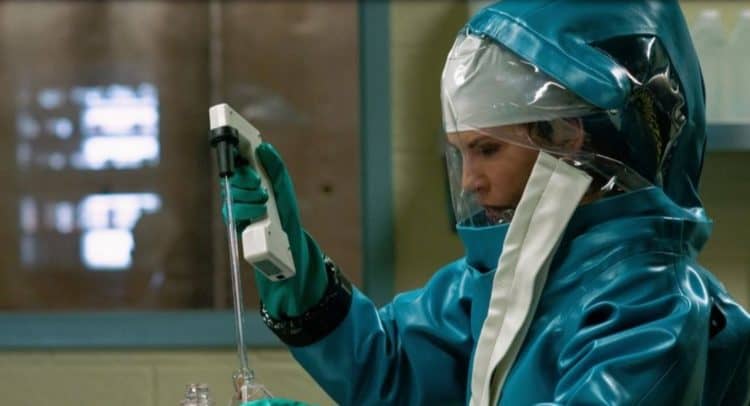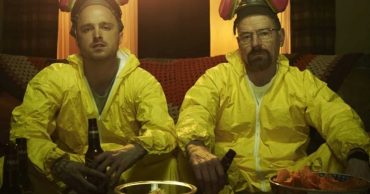
The advice given by John Anderson of The Wall Street Journal isn’t horrible by any means, it’s actually kind of amusing, but it does serve a point. If you want your kids thinking twice about washing their hands, and even going to bed worrying about a terrifying virus that can be transmitted in a variety of ways, then The Hot Zone on National Geographic might be the show you want. In all seriousness though the miniseries is being based off the nonfiction book The Hot Zone: A Terrifying True Story, is something that you might want to take a look at since quite honestly the Ebola virus was something uniquely terrifying when it was discovered that there was an outbreak some time ago. While it’s true that the disease has largely stayed in Africa it’s terrifying enough to think that it might be able to be transmitted in a very easy manner given how viruses can mutate and thereby affect people on a wider scale.
This story is as close to the true account of what was happening back in the days when the Ebola virus was fairly new to many people’s reckoning and was a biological monster unlike anything people had seen or heard of before. As Melanie McFarland has already stated this limited series is going to focus largely on the virus as the star, though there will be an impressive cast that will be brought on in order to make this a show that people should be willing to take a look at. Apparently it’s going to be just a little gruesome since the Ebola virus is not a kind or harmless organism and does tend to make a rather big mess as it continues to ravage the insides of its victims. While it’s not exactly something you’d want to sit and be entertained by, this is more of a product of history being delivered to us once again in a way that we can at least sit and enjoy for what it is, a story that carries a humongous burden of truth. Whatever we were told about the Ebola virus when it emerged in the US back in the late 80s it wasn’t nearly enough to make a lot of people live in fear, as was probably wise, but it was enough to get a lot of people sweating. A virus that can essentially cause you to bleed internally and has an alarmingly high likelihood that it will kill you is nothing to mess around after all, though many comedians did manage to make a huge number of jokes about it to try and take the sting of fear from the populace. While it worked in some instances it was likely because of the efforts of those that were operating at ground zero and were trying to figure out just how to stop it from spreading.
George Dickie makes it clear that this series won’t sugarcoat anything or give anyone the impression that the outbreak wasn’t serious in any way, as the opening scene is that of a man that is obviously suffering as he sweats, shakes, and shambles his way to his seat on an airplane before nearly filling a vomit bag that the flight attendant promptly takes from him to dispose of. It’s only a minute or so later that she notices that the bag is filled with blood, and from there we get the idea that something is very wrong, and could only get worse. In some respects it might seem almost vulgar to create a bit of entertainment about this matter since it was and still is pretty serious. But it’s because the Ebola virus is still around that the importance of this does still exist, and while the series is for entertainment it’s also to remind people that there are very serious dangers in our world that we don’t always see and don’t always know about until it’s too late. The Ebola virus can spread in a few different ways, a couple of which people might never think about since it can be spread through bodily fluids or contaminated items or surfaces. In other words you could touch a door knob that another person infected with the virus had touched and run the risk of contracting it. The upside is that the Ebola virus is not an airborne virus since over short distances it is possible to transmit it through droplets caused by sneezing or coughing, but over longer distances the virus is not able to be transmitted, meaning that if can’t be born on the wind to infect people that are not within close quarters to each other.
Watching this series though it does seem that a great deal of thanks are to be given to those that years ago combated the virus. A hearty thank you to those that are still fighting it seems due as well.
 Follow Us
Follow Us





